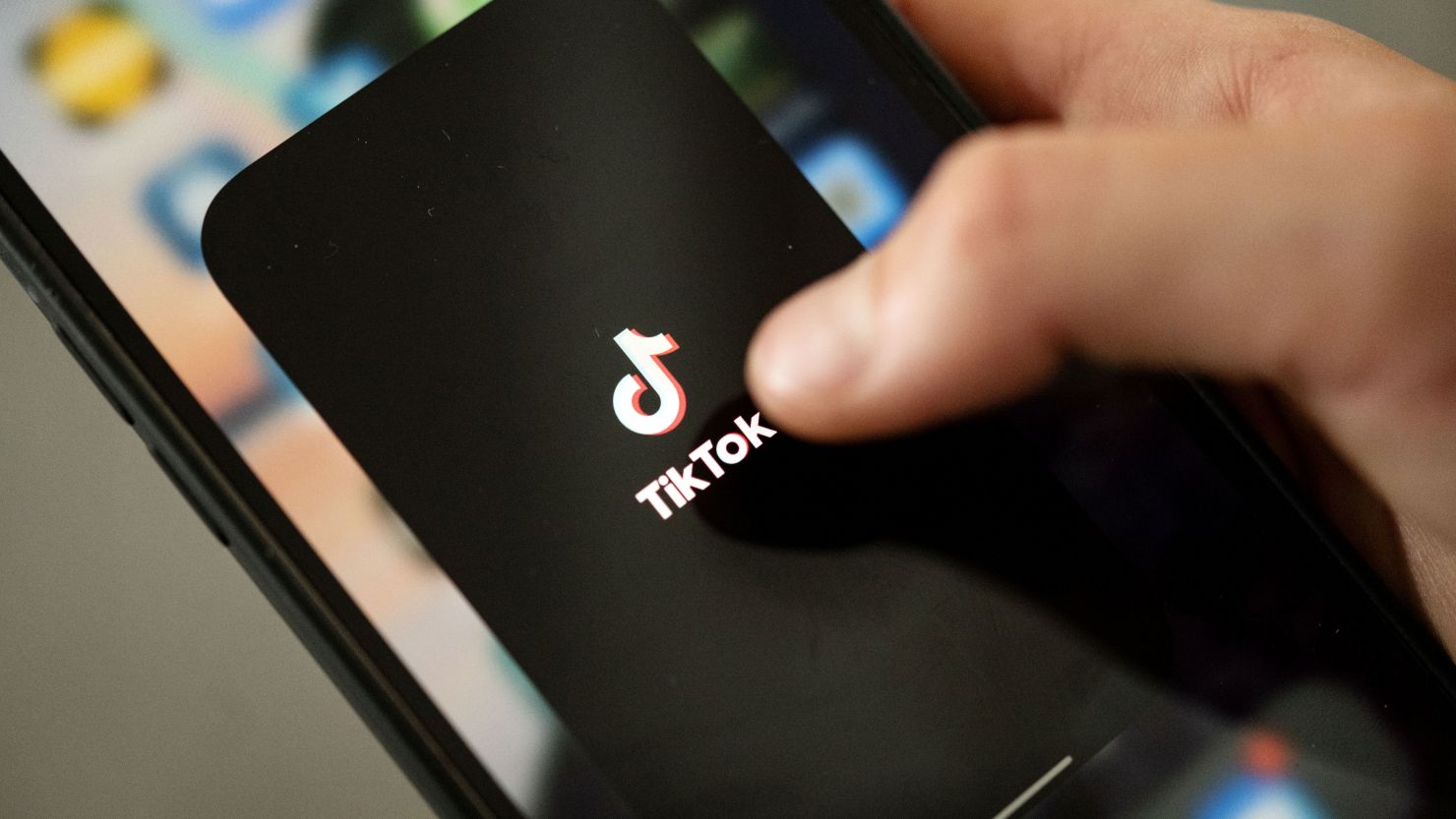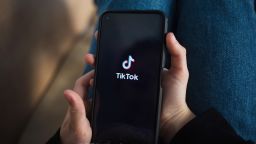When a TikTok user searches the social media app for information on top news stories, ranging from Covid-19 vaccines to school shootings, nearly 20% of the videos presented as search results contain misinformation, according to a research report published Wednesday.
Researchers at NewsGuard, a journalism and technology tool that tracks online information, searched TikTok and Google this month for information on major news topics such as the 2020 presidential election, the Russia-Ukraine war and abortion to compare the misinfomation delivered by their search engines.
TikTok, whose users are predominantly teenagers and young adults, “repeatedly delivered videos containing false claims in the first 20 results, often within the first five,” the report states. “Google, by comparison, provided higher-quality and less-polarizing results, with far less misinformation.”
A Google spokesperson declined to comment on the report when contacted by CNN.
The researchers searched terms such as “mRNA vaccine” and “2022 election,” as well as controversial news topics like “Uvalde tx conspiracy.” They analyzed 540 TikTok results and found that 105 videos, or 19.4%, contained false or misleading claims, the report says.
According to the report, a search on TikTok for information about politics, including the 2020 presidential election and the January 6, 2021, US Capitol insurrection, often included misinformation as well as references to QAnon conspiracy theories. For example, a search for the question “Was the 2020 election stolen?” yielded six videos that contained false claims in the first 20 results, NewsGuard found.
NewsGuard researchers also found that TikTok’s search engine “is consistently feeding millions of young users health misinformation, including some claims that could be dangerous to users’ health.” For instance, a search for “does mugwort induce abortion” receives over a dozen results that advocate for unproven herbal abortion methods.
TikTok recently began removing abortion-related videos that violate its policy against medical misinformation, including those that share potentially dangerous advice about how to self-induce an abortion.
In response to the NewsGuard report, a TikTok spokesperson told CNN that its community guidelines “make clear that we do not allow harmful misinformation, including medical misinformation, and we will remove it from the platform. We partner with credible voices to elevate authoritative content on topics related to public health, and partner with independent fact-checkers who help us to assess the accuracy of content.”
TikTok ties to China under scrutiny
TikTok removed more than 102 million videos in early 2022 for violating its guidelines, according to its Community Guidelines Enforcement Report. But less than 1% of those videos were removed for violating the company’s “integrity and authenticity” guidelines, which include misinformation, according to NewsGuard’s review.
NewsGuard’s report was released amid bipartisan concerns in Washington about the possibility that US user data could find its way to the Chinese government and be used to undermine US interests due to a national security law in that country that compels companies located there to cooperate with data requests.
US officials have expressed fears that China could use Americans’ personal information to identify useful potential agents or intelligence targets, or to inform future mis- or disinformation campaigns.
Testifying before the Senate Homeland Security Committee on Wednesday, TikTok Chief Operating Officer Vanessa Pappas declined to commit to cut off flows of US user data to China, instead promising that the outcome of its negotiations with the US government “will satisfy all national security concerns.”
TikTok does not operate in China, Pappas said, though it does have an office in China. TikTok is owned by ByteDance, whose founder is Chinese and has offices in China.
“I was surprised that TikTok is so much worse even than Google and worse, as a general matter as a platform, than Facebook or Twitter when it comes to this stuff,” Steven Brill, founder of NewsGuard, told CNN.
Brill said the report’s findings are especially concerning due to the company’s ties to China and how easily children can access the app’s content.
“We should take this as a warning. If I had kids of TikTok age, I would certainly want to know what they’re using as a search engine,” Brill said. “I’d be upset enough if they were relying too much on Google and coming up with reports in school that were based on what they were reading on Wikipedia. But this takes it so many levels further.”






